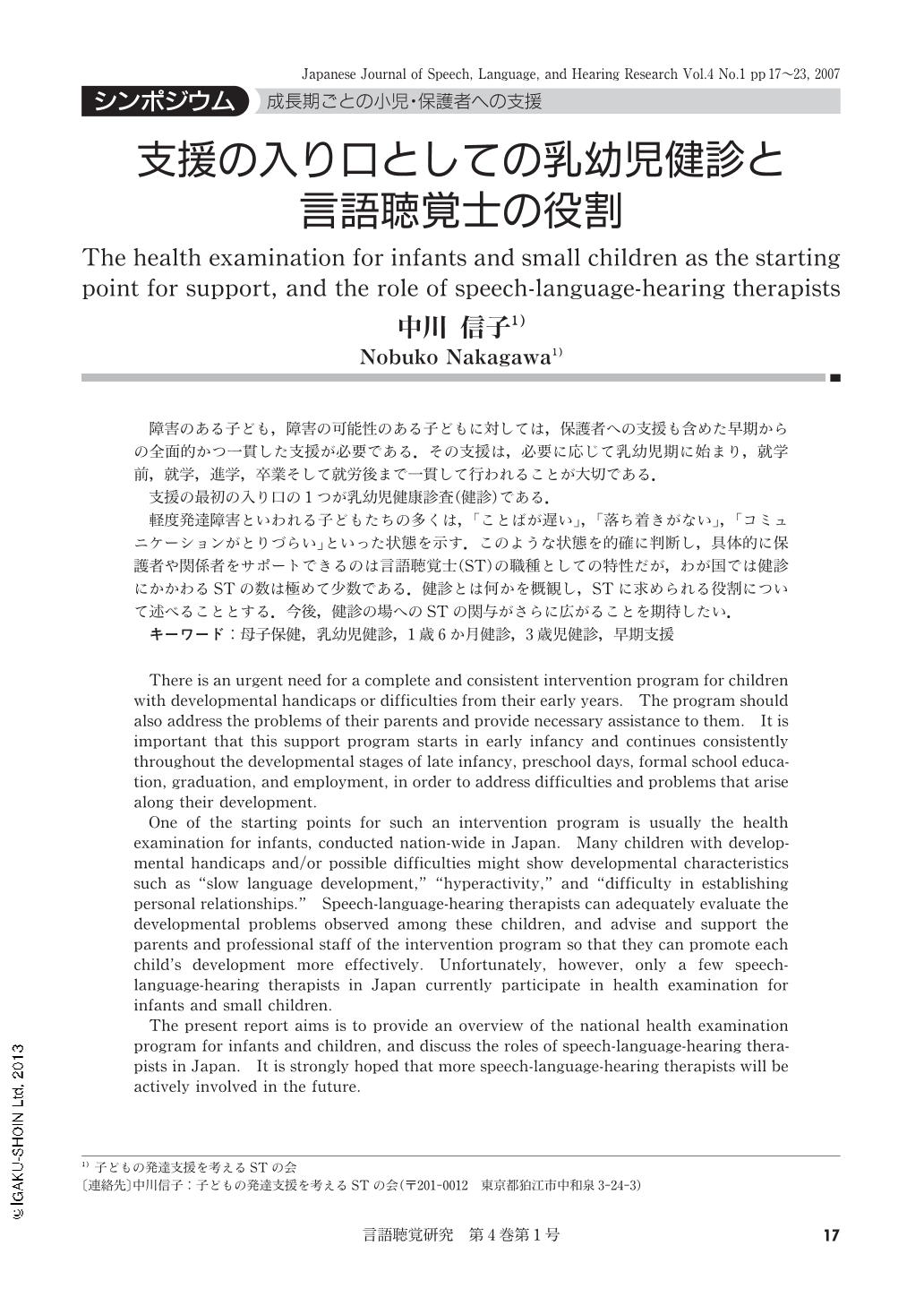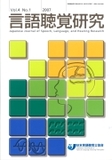Japanese
English
- 有料閲覧
- Abstract 文献概要
- 1ページ目 Look Inside
- 参考文献 Reference
- サイト内被引用 Cited by
障害のある子ども,障害の可能性のある子どもに対しては,保護者への支援も含めた早期からの全面的かつ一貫した支援が必要である.その支援は,必要に応じて乳幼児期に始まり,就学前,就学,進学,卒業そして就労後まで一貫して行われることが大切である.
支援の最初の入り口の1つが乳幼児健康診査(健診)である.
軽度発達障害といわれる子どもたちの多くは,「ことばが遅い」,「落ち着きがない」,「コミュニケーションがとりづらい」といった状態を示す.このような状態を的確に判断し,具体的に保護者や関係者をサポートできるのは言語聴覚士(ST)の職種としての特性だが,わが国では健診にかかわるSTの数は極めて少数である.健診とは何かを概観し,STに求められる役割について述べることとする.今後,健診の場へのSTの関与がさらに広がることを期待したい.
There is an urgent need for a complete and consistent intervention program for children with developmental handicaps or difficulties from their early years. The program should also address the problems of their parents and provide necessary assistance to them. It is important that this support program starts in early infancy and continues consistently throughout the developmental stages of late infancy, preschool days, formal school education, graduation, and employment, in order to address difficulties and problems that arise along their development.
One of the starting points for such an intervention program is usually the health examination for infants, conducted nation-wide in Japan. Many children with developmental handicaps and/or possible difficulties might show developmental characteristics such as "slow language development," "hyperactivity," and "difficulty in establishing personal relationships." Speech-language-hearing therapists can adequately evaluate the developmental problems observed among these children, and advise and support the parents and professional staff of the intervention program so that they can promote each child's development more effectively. Unfortunately, however, only a few speech-language-hearing therapists in Japan currently participate in health examination for infants and small children.
The present report aims is to provide an overview of the national health examination program for infants and children, and discuss the roles of speech-language-hearing therapists in Japan. It is strongly hoped that more speech-language-hearing therapists will be actively involved in the future.

Copyright © 2007, Japanese Association of Speech-Language-Hearing Therapists. All rights reserved.


